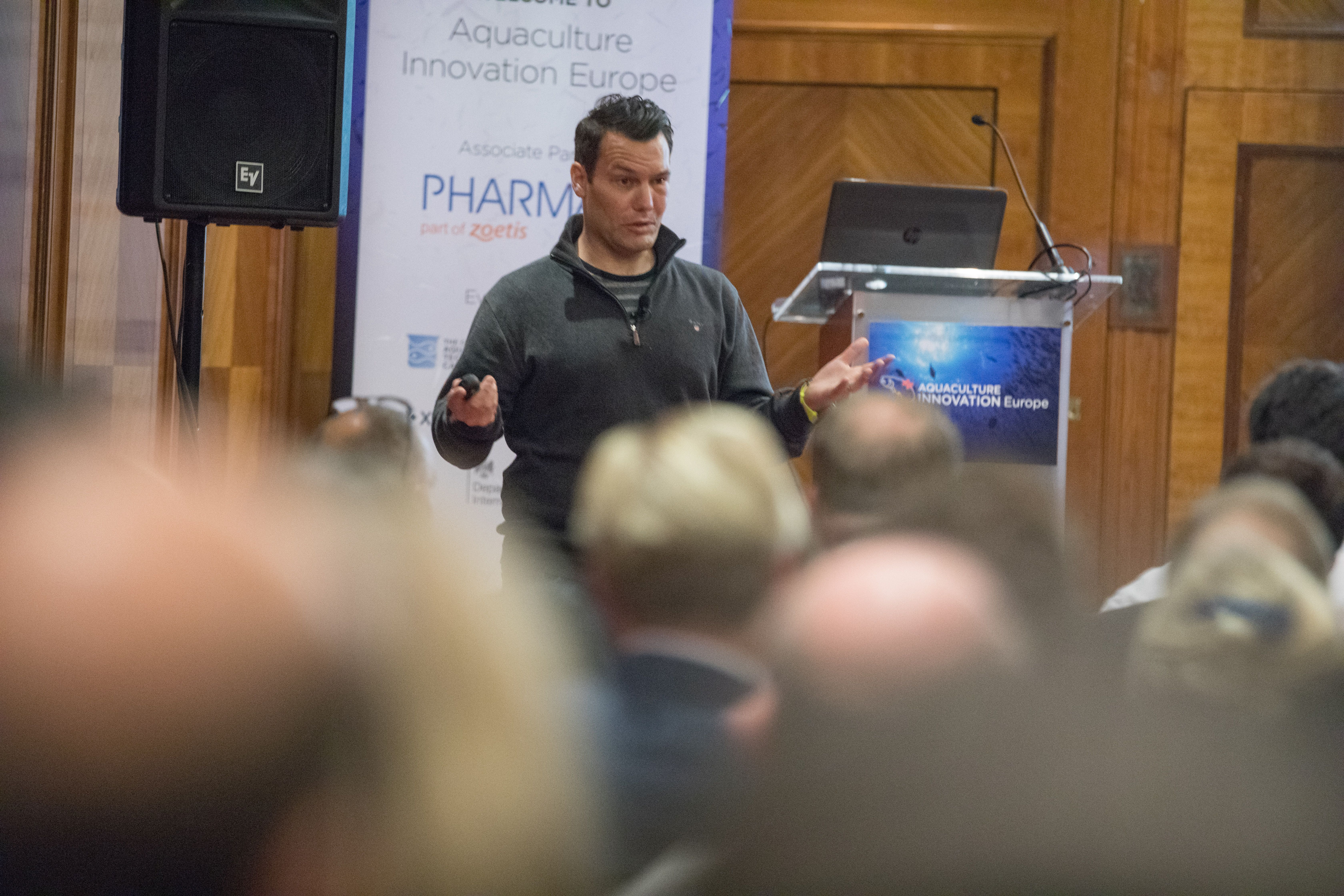Be patient, investors tell start-ups

RAISING funds for aquaculture start-ups is tough but companies that show patience and perseverance will find sympathetic investors.
Three of these money men were in London yesterday to give advice to fledgling enterprises and the message was generally upbeat.
Christian Rangen, the founder of X2 Labs, described as an accelerator programme, said there should be about 20 to 25 venture capitalists globally specialising in aquaculture, as in sectors such as solar energy.
‘This industry doesn’t have that landscape developed yet,’ Rangen told delegates at the Aquaculture Innovation Europe summit, held over two days in the capital.
‘There are many start-ups in this room and they would struggle to find who they should talk to,’ he said. They tend to go to friends and family or big corporates, who don’t even return their calls.
But Rangen believes this is a ‘golden age of aquaculture investors’ because there’s so much growth across the ‘rapidly evolving’ industry.
He said X2 Labs, which builds companies from scratch, entered the aquaculture market about a year and a half ago, after finding much interest from investors.
‘We are raising a fund and we expect to invest in between three to eight aquaculture companies within the next four months,’ he said.
These would not be in the biology field, which other investors knew better, but rather in the aqua tech space, the digital space, engineering and construction, and offshore farms.
Singapore based Gerard Chia, of New Protein Capital, has been investing in aquaculture for four years and takes a different approach from typical venture capitalists.
‘We’re not here to mentor you, we’re not here to hold your hand, but we can provide the connections, we can provide the best way to create value for your company,’ said Chia.
New Protein Capital invests relatively small sums of around $2 million and now has about 530 companies in the pipeline. It invests all over the world, mainly because it sees most innovation outside Asia. But Chia said he hoped that would change and they could become ‘the gateway to Asia’.
‘The biggest thing for us is if a start-up is answering an unmet need.’
Looking at later stage and often much bigger ventures, Neil Wendover, aquaculture director of feed company Cargill’s new investment division, said his team applies the same rigour to a $1.5 billion investment as it does to a $3 million investment.
Cargill, he said, is a growth company, reinvesting 80 per cent of what it earns. One of the biggest privately owned organisations in the world, it has a long-term outlook.
‘It’s cash rich, it has a lot of capital. We tend to look five, 10, 15, 20 years on, we don’t have this quarterly obsession, and we’re not very good at making short term tactical investments. We like to look at strategic capability that will complement our business, complement our vision.’
Although the three investors operate in different ways, they were all agreed on one thing: crowdfunding is a bad idea.
Liev Midthasssel of Mithal, the start-up behind the Remora net cleaner, asked the panel: ‘There are very few of you guys around so what about crowd funding?’
Rangen said: ‘Don’t do it! A successful crowdfunding campaign is 18 months’ planning plus execution, you’re clueless if you don’t have a team to do it. We’re seeing a lot of crowdfunding companies that do all the ground work and they can’t get it to launch stage. Credit cards work much better.’
The innovation summit followed a Dragons Den style format, with 12 start-ups making their pitches in three categories: nutrition, health and farm management.
A team of investors then selected winners in each area and presented them with innovation awards. They were Entocycle, an insect protein entrepreneur; Manolin, creator of a digital health analytics platform; and Liev Midthasssel’s Mithal.
A full report from the Aquaculture Innovation Europe summit will appear in the October issue of Fish Farmer.
Picture: Nutrition Showcase winner James Millar from Entocycle

